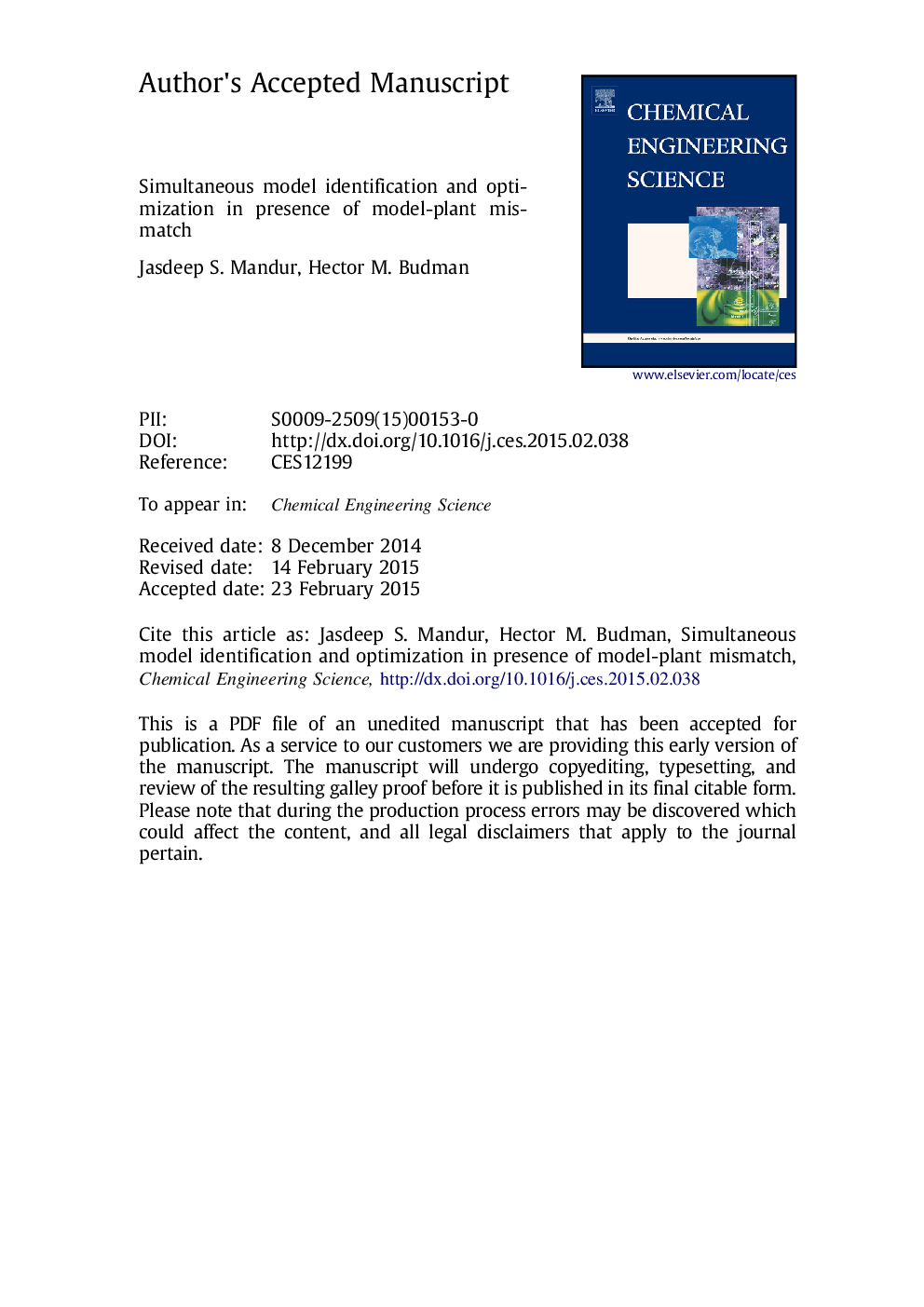| Article ID | Journal | Published Year | Pages | File Type |
|---|---|---|---|---|
| 6590060 | Chemical Engineering Science | 2015 | 41 Pages |
Abstract
In a standard optimization approach, the underlying process model is first identified at a given set of operating conditions and this updated model is, then, used to calculate the optimal conditions for the process. This “two-step” procedure can be repeated iteratively by conducting new experiments at optimal operating conditions, based on previous iterations, followed by re-identification and re-optimization until convergence is reached. However, when there is a model-plant mismatch, the set of parameter estimates that minimizes the prediction error in the identification problem may not predict the gradients of the optimization objective accurately. As a result, convergence of the “two-step” iterative approach to a process optimum cannot be guaranteed. This paper presents a new methodology where the model outputs are corrected explicitly for the mismatch such that, with the updated parameter estimates the identification and optimization objectives are properly reconciled. With the proposed corrections being progressively integrated over the iterations, the algorithm has guaranteed convergence to the process optimum and also, upon convergence, the final corrected model predicts the process behavior accurately. The proposed methodology is illustrated in a run-to-run optimization framework with a fed-batch bioprocess as a case study.
Keywords
Related Topics
Physical Sciences and Engineering
Chemical Engineering
Chemical Engineering (General)
Authors
Jasdeep S. Mandur, Hector M. Budman,
